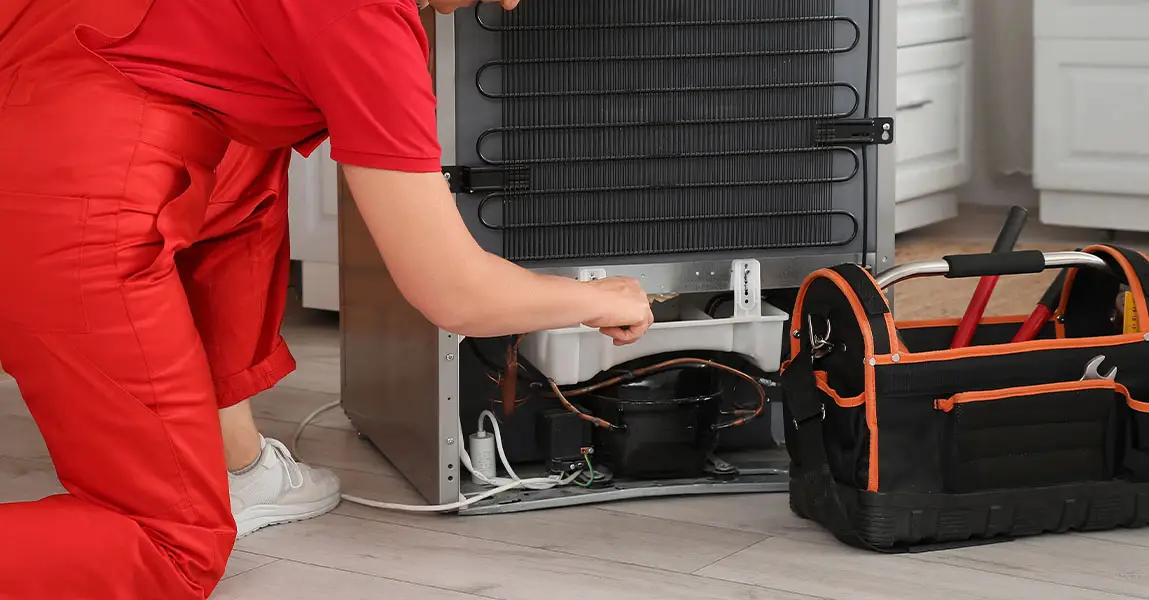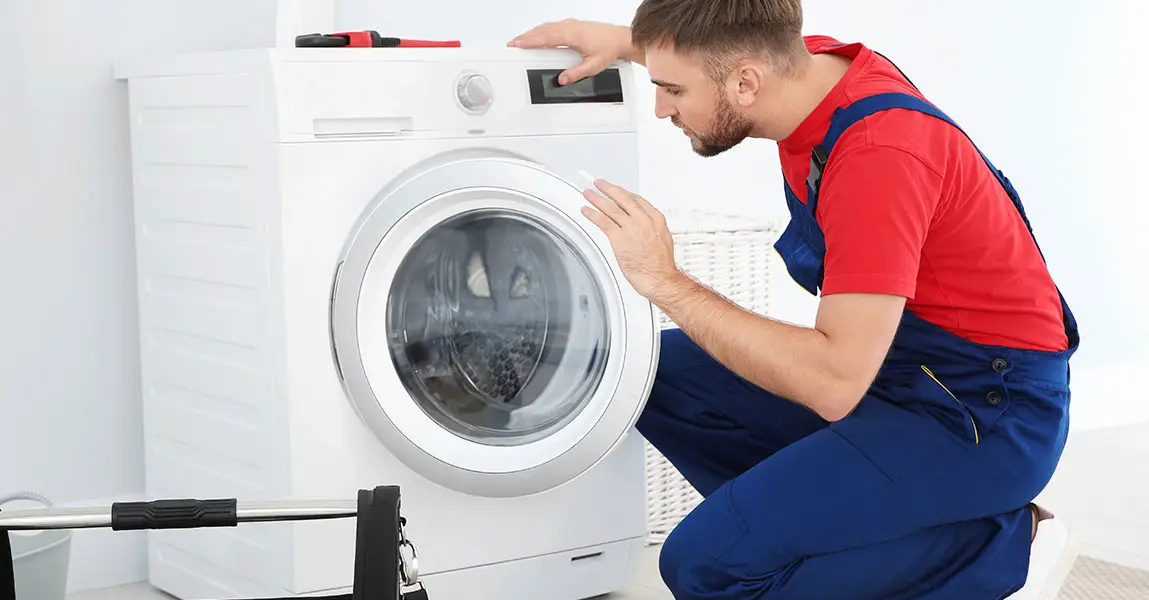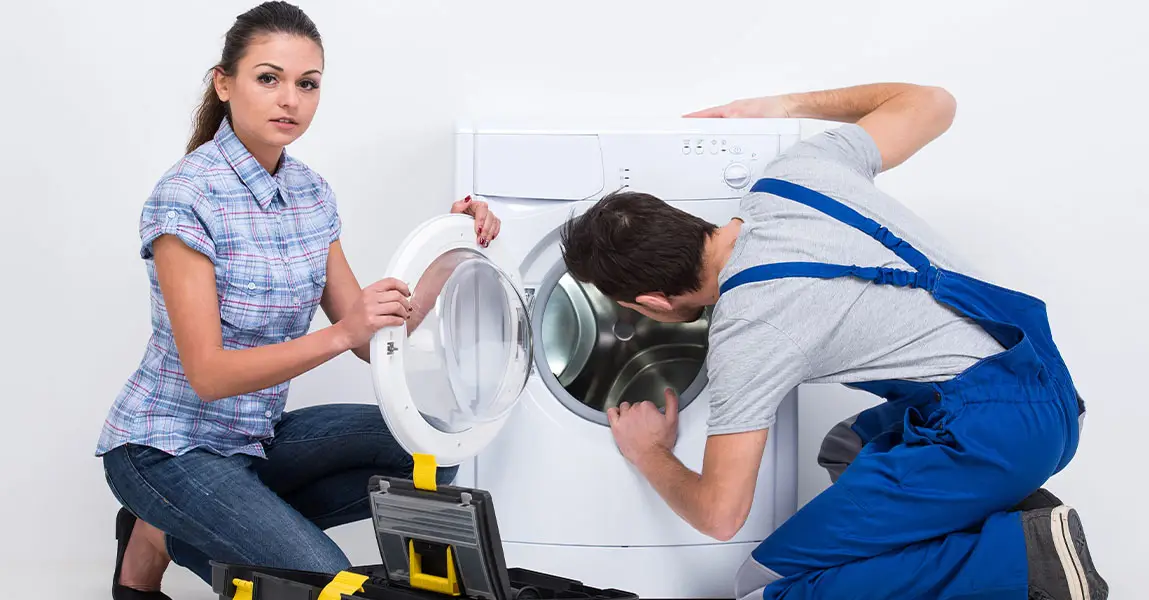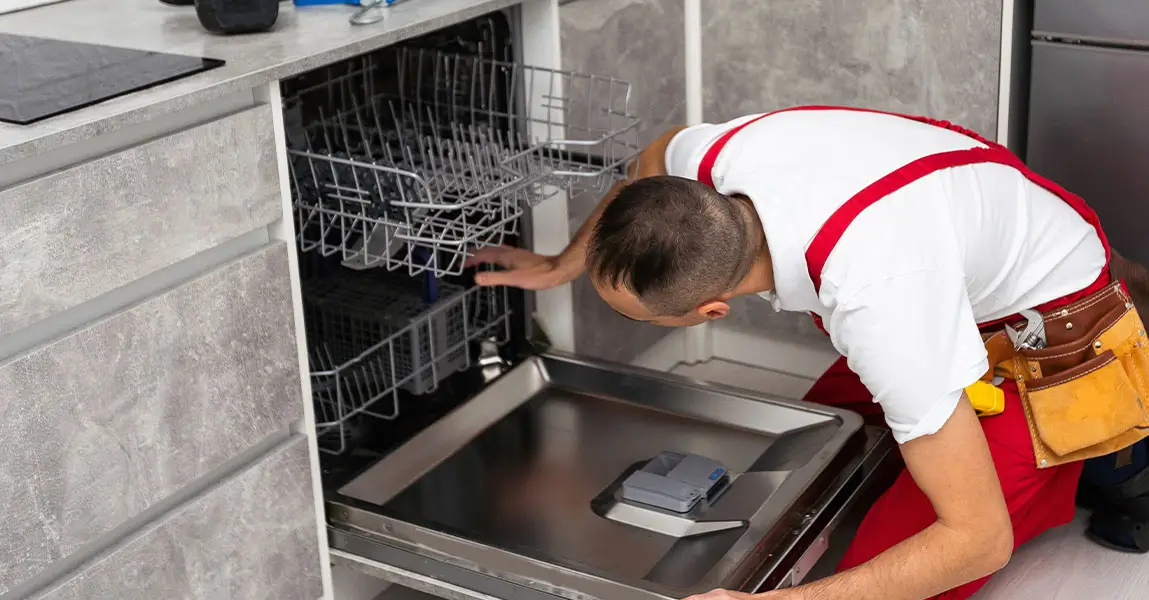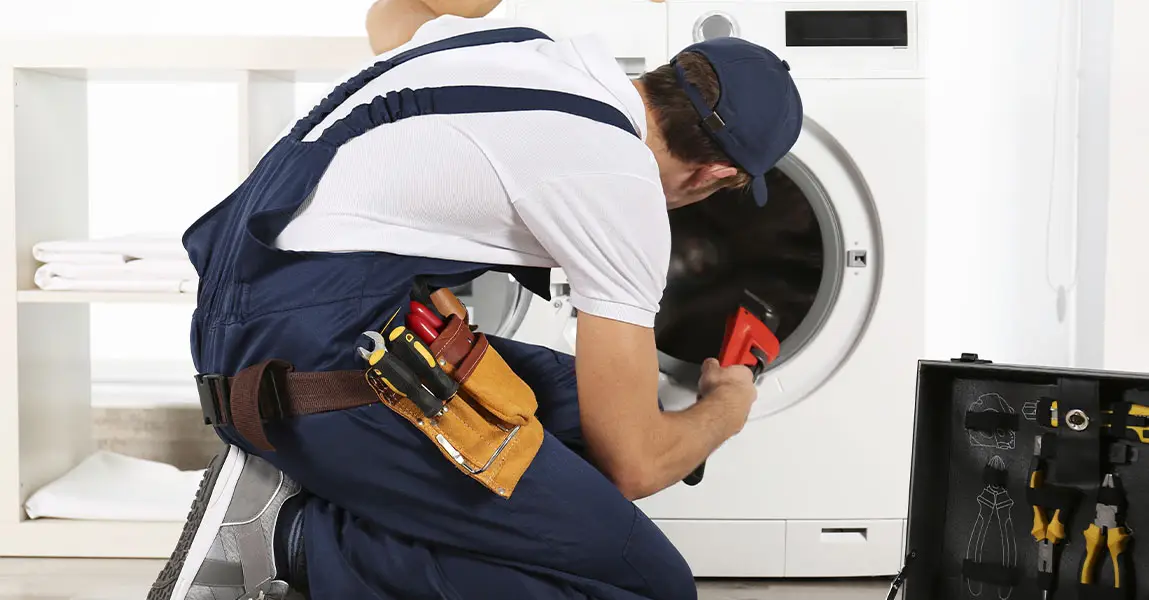Appliances make daily life easier. We depend on them for cooking, cleaning, and keeping our homes comfortable. Yet many people wait until something breaks before calling for help. Preventive care may not seem urgent, but it often saves time and money in the long run. At Fast Appliance Repair, we have seen how small steps and regular upkeep extend the life of every household appliance.
Why Maintenance Matters More Than Repairs
Regular maintenance prevents problems from growing into major failures. A small leak in a washing machine or refrigerator line may seem harmless, but over time it can damage floors or cause internal corrosion. It is always cheaper to clean coils or replace filters than to fix electrical damage later. In our work, we often find that people could have avoided expensive repairs simply by keeping their machines clean and ventilated.
Appliance maintenance also protects efficiency. When coils, filters, or vents become blocked, machines work harder and use more energy. That strain shortens lifespan and drives up electricity costs. Regular cleaning and inspection help everything run at its intended performance level. Over a year, that difference adds up to noticeable savings.
The Cost of Neglect
Many households replace appliances years before necessary because small issues went unnoticed. Dirt, moisture, and vibration all contribute to premature failure. A dryer with lint buildup can overheat. A dishwasher with hard water deposits must work harder to clean dishes. A refrigerator running with dirty coils can lose cooling power and strain its compressor.
Neglect does not just shorten lifespan; it also affects safety. Overheated motors and blocked airways increase the risk of fire. Worn electrical connections can spark. We often remind homeowners that maintenance is not only about money but also about reducing risk. Prevention costs far less than replacement or damage repair.
How to Maintain Your Appliances Effectively
The right approach depends on the appliance, but a few general habits make a big difference. Always unplug before cleaning or checking parts. Use manufacturer guides for filter changes, vent cleaning, and lubrication schedules. For many homeowners, it helps to set reminders every three to six months.
For example, keep refrigerator coils clear of dust to improve airflow and cooling efficiency. Clean lint traps and dryer vents regularly to avoid overheating and reduce drying times. Descale your dishwasher and washing machine to prevent buildup that reduces water flow and performance. These are quick tasks that prevent major issues later.
If something starts sounding unusual, investigate early. Rattles, squeaks, and grinding noises are often signs of imbalance or wear. Early inspection can catch these small symptoms before they damage moving parts.
The Energy Efficiency Advantage
One of the easiest ways to lower utility bills is by maintaining your appliances. A dirty coil or clogged vent increases energy demand. The more resistance inside a machine, the more power it draws to achieve the same result. Over time, that extra consumption can add hundreds of dollars to yearly bills.
For example, air conditioners lose efficiency when filters clog. Refrigerators with poor airflow struggle to maintain temperature. A well-maintained dryer completes cycles faster, using less power. These benefits combine to make routine care one of the most cost-effective energy-saving habits in a home. Regular servicing from professionals like those in appliance repair Calgary can also catch issues invisible to the eye, keeping performance at its best.
Extending Appliance Lifespan
Every appliance has a design lifespan, but neglect shortens it dramatically. Dirt, imbalance, and heat all accelerate wear. Simple steps such as leveling washing machines, cleaning filters, and maintaining proper ventilation help parts last longer. Most major appliances can easily operate several years beyond their expected life when cared for properly.
Replacing an appliance is one of the largest expenses for homeowners. Maintenance delays that cost by preserving reliable function. Instead of budgeting for early replacement, it makes sense to invest a little time and occasional service checkups to keep everything running smoothly.
When to Call a Professional
Some maintenance tasks are simple for anyone to perform. Others require specific tools or knowledge. Tasks like testing electrical connections, refrigerant checks, or replacing internal seals should always be done by a technician. Improper handling can cause damage or void warranties.
We recommend a professional inspection once a year, especially for appliances that run daily. A trained technician can check for hidden leaks, worn belts, or unsafe wiring. These visits often prevent breakdowns that would otherwise require expensive emergency calls. Scheduling maintenance before problems appear keeps appliances running longer and reduces stress during busy seasons.
Budgeting for Maintenance
Many people delay maintenance because they think it adds extra cost. In reality, spreading small care tasks through the year keeps expenses predictable. You can handle simple cleaning yourself and plan for one or two professional inspections annually. This approach avoids the shock of sudden failures or replacement bills.
Another advantage is that you can group maintenance tasks together. For example, schedule a full household appliance check in spring or fall. That timing fits well with seasonal energy changes and ensures that heating or cooling appliances perform efficiently during high-use periods.
The Environmental Benefit
Maintaining appliances helps the planet as well as your wallet. Every time we repair instead of replace, we reduce waste and energy consumption from manufacturing new products. Properly tuned machines use less electricity and water, which directly cuts carbon emissions.
Household sustainability often starts with simple habits. Cleaning filters, fixing leaks, and maintaining seals all contribute to lower waste and longer product life. It is an easy way to live responsibly while enjoying financial savings.
What to Include in a Maintenance Routine
A good routine covers all major appliances in the home. This checklist helps you stay consistent:
- Refrigerator: Clean coils twice a year, check door seals, and defrost if ice builds up.
- Oven and Stove: Wipe spills immediately, inspect burners, and check for proper ignition.
- Dishwasher: Clean filters monthly, run a vinegar cycle, and check spray arms.
- Washing Machine: Leave the door open to dry, clean the rubber seal, and run an empty cycle with cleaner.
- Dryer: Empty lint trap after each use, clean vent ducts yearly, and ensure airflow is clear.
Following these steps keeps performance steady and prevents costly surprises.
Signs That Maintenance Is Overdue
Appliances send clear signals when they need care. If your fridge runs constantly, the coils may be dirty. If clothes take longer to dry, the vent likely has buildup. Water stains near a dishwasher or washer point to small leaks. Strange noises or vibrations usually mean a loose part or imbalance.
Do not ignore these signs. Taking quick action keeps problems small. When unsure about a symptom, it is always worth getting a professional opinion before more damage occurs.
How Maintenance Impacts Home Value
Buyers notice well-kept homes. Functional, efficient appliances create a better impression and show responsible ownership. If you plan to sell, demonstrating consistent maintenance can support higher value. Receipts and service records reassure potential buyers that your home has been cared for properly.
Even if you are not selling, well-maintained appliances contribute to everyday comfort. Knowing everything runs smoothly gives peace of mind and keeps household routines uninterrupted.
The Smart Way to Schedule Maintenance
Consistency matters more than intensity. It is better to perform small checks regularly than wait for an annual overhaul. Many homeowners find it helpful to assign maintenance by season. Spring cleaning pairs well with inspecting washers and dryers. Fall is ideal for refrigerators, ovens, and heating units.
You can also set digital reminders on your phone or calendar. This habit turns maintenance into an easy routine instead of a forgotten chore. Keeping track of what has been serviced helps identify patterns and plan ahead.
When Repairs Become Necessary
Even with the best care, parts eventually wear out. Regular maintenance does not eliminate repairs but ensures they are less frequent and less severe. When something breaks, the repair process is faster because the machine has been well maintained. A clean, inspected system helps technicians diagnose problems quickly, reducing labor costs.
If a machine shows repeated failure after maintenance, replacement may make more sense. But most often, routine care prevents reaching that stage too early. Keeping appliances in shape always pays off over time.
Making Maintenance a Family Habit
Everyone in the household can play a part in caring for appliances. Children can learn to empty lint traps, wipe counters, or check for drips under sinks. These simple habits teach responsibility and reduce household stress. When everyone contributes, the home runs efficiently and breakdowns become rare.
Teaching maintenance as part of daily routines also builds long-term habits that save money beyond one home. Consistent attention is the best protection for any machine you rely on.
When to Reach Out for Help
Even small tasks can raise questions. If you notice unusual smells, sounds, or leaks, do not wait. It is always safer to have a professional inspect the appliance. Skilled technicians can determine if the issue needs immediate attention or a minor adjustment.
If you want dependable assistance or preventive service scheduling, you can contact us to arrange an appointment. A professional checkup helps identify early signs of wear and ensures your appliances continue operating efficiently throughout the year.
Frequently Asked Questions
1. How often should I maintain my appliances?
Most household appliances benefit from maintenance every three to six months. Heavy-use items like refrigerators or dryers may need more frequent cleaning and inspection.
2. What is the most common cause of appliance breakdowns?
Neglect and buildup are the main culprits. Dust, lint, and mineral deposits force parts to work harder, leading to early wear or overheating.
3. Can regular cleaning really save electricity?
Yes. Clean filters, vents, and coils help appliances work efficiently, which lowers energy use and utility bills over time.
4. When should I call a professional for maintenance?
Call a technician for any electrical issues, leaks, or persistent noise. Annual inspections are also recommended for safety and reliability.
5. Is it worth repairing older appliances?
If the appliance runs efficiently after regular maintenance, repair is often more cost-effective than early replacement. Proper care extends lifespan and reduces overall costs.

